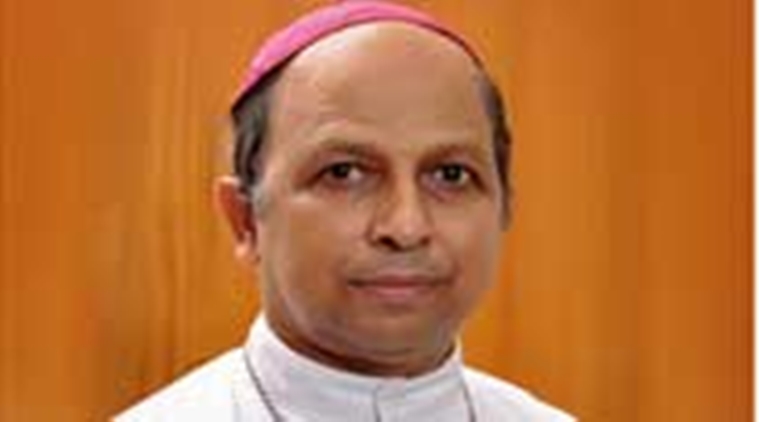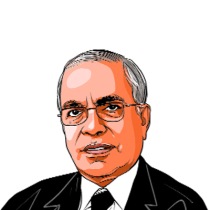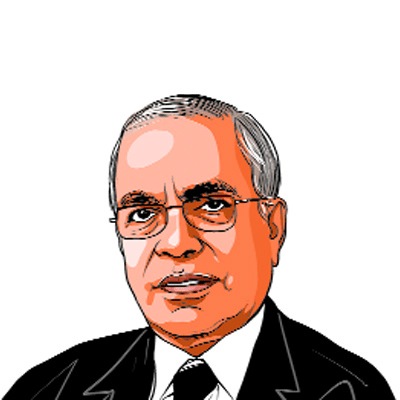Letting the Archbishop Write
The very essence of an open, democratic society is that different groups are allowed to agitate their concerns and demands before the relevant authorities. This is what the democratic ethos is all about.

The Archbishop of Delhi Anil Couto has recently been in the eye of a storm provoked by his letter to all parishioners in the Capital exhorting them to start a prayer campaign for the country and political leaders ahead of the 2019 elections.
It is a bit difficult to understand how Rakesh Sinha’s piece “Mis-reading Archbishop’s letter”(IE June 5th, 2018) got its title. Very little in the article covered what the Archbishop wrote and what exactly was wrong with the editorial that analysed it. Instead, it covered the whole gamut of what the author considers to be the shortcomings of Christian missionaries and how India still continues to suffer international conspiracies hatched by them. It is important, therefore, to look at what the Archbishop said, to whom it was addressed and whether it was appropriate for the Archbishop to say what he did.
At the centre of the letter was the plea to his flock to fast and pray for the country, which, in the Archbishop’s view, was facing a turbulent political atmosphere. Sinha is quite at liberty to insist that there is no such atmosphere in the country and that the Archbishop is quite mistaken in his belief. It is another matter that a fairly large section of India’s population (including many Hindus) would not agree with this view. But that is not the point. If Sinha is entitled to his view that no such atmosphere exists why is the Archbishop not entitled to hold a contrary view and place that view before his followers? As the spiritual head of his diocese, he is duty bound to guide his people on what he considers to be the right approach. Why should he be prevented from saying what he feels?
Elections in our country have thrown up numerous instances in which spiritual leaders have openly advised their followers to support one or other party. Examples of this have been so widely splashed all over the media that there is really no reason to repeat them. It must be noted that nowhere in the letter has the Archbishop advised his flock to vote for a particular party or to vote against another party. His plea is to pray that each citizen follows her conscience and chooses wisely at election time.
The article is silent on this aspect. Instead, we are told that the Archbishop has no right to interfere in India’s domestic politics because he is directly appointed by the Pope, the head of the Vatican state. This is truly strange logic. The Archbishop is undoubtedly appointed by the Pope but in most organised religions it is the spiritual head of the religion who appoints its local leaders. This is true not only of religions but also of other secular institutions like commercial houses. An Indian who heads Proctor and Gamble, for instance, would be appointed by his bosses in the USA. Does this extinguish his right to comment on politics within the country? The Archbishop’s right to comment on matters Indian comes, not from the nationality of his appointing authority, but from his Indian citizenship and the rights he is guaranteed under the Constitution by that citizenship.
The article quotes three cases in which Indian Christians lobbied successfully with the authorities to get their point of view accepted and the author seems to feel that this is entirely unacceptable. Two of these cases refer to events that happened in the ‘50s and the ‘60s and the third in the ‘70s. But the antiquity of these cases is not as remarkable as the underlying logic of the argument which seems to be that by pressing their claims, Christians have somehow violated the canons of good behaviour. The very essence of an open, democratic society is that different groups are allowed to agitate their concerns and demands before the relevant authorities. This is what the democratic ethos is all about. We have only to look at the spate of demands that different categories in our country have agitated successfully or otherwise. Several castes have launched major agitations for inclusion in the backward category, farmers agitate for better returns for their produce, trade unions agitate for a better deal for their members, Cabinet formation in both the Centre and the states invariably tries to balance the competing claims of different groups. So what is wrong if the Christian community puts forward their demands before the relevant authorities? It surely cannot be anybody’s case that other groups can plead their cases but a minority group cannot.
The real problem seems to be that we are forgetting our moorings as an open pluralistic society. And that is why our soft power is on the downward swing. I have been fortunate enough to be on several Indian delegations to international bodies like the IMO, the ILO, the OECD or others. Each time our proudest boast was that our delegation included members from at least 2 (sometimes more) of the major religions of the world. Very often each member of the delegation spoke a different language at home, followed different customs at marriage and other social events and had vastly different cuisines in their kitchens. But this plurality of background did not come in the way of our coming together as one country. It was a USP that few other countries could claim.
This is something that we have become so used to that we tend to take it for granted. And yet it is at the very centre of our uniqueness. Until immigration changed things somewhat, most European countries were entirely monocultural. Some Scandinavian countries still are. Even in countries where immigrants account for a sizable number, the dominant culture is still dominant, whether in terms of language, culture, accents etc. A well-known Indian author tells of an Indian Muslim who decided to emigrate to Pakistan. He was back in a short while and, on being asked what he found wrong with that country, replied with a laconic “Too many Muslims”. He missed the multiculturalism of India.
That a country with as many languages, cultures, religions and ways of life as we have can still come together as one country is something to be proud of. This is our soft power and we must do nothing to undermine it. Ultimately all this is not about an Archbishop and his pastoral letter. It is about preserving all that is most precious in Indian society.
Pinto is former Vice Chairman, National Commission for Minorities
For all the latest Opinion News, download Indian Express App
© IE Online Media Services Pvt Ltd
More From Michael Pinto
- Punishing the witnessIn bank frauds, as in much else, wrongdoers go free, the root cause remains..
- Let The Market DecideWe must not bring back the licence raj to engineering education..
- The costs of being goodSwaraj’s gesture didn’t change facts of Lalit Modi case or subvert due process..








































No hay comentarios:
Publicar un comentario